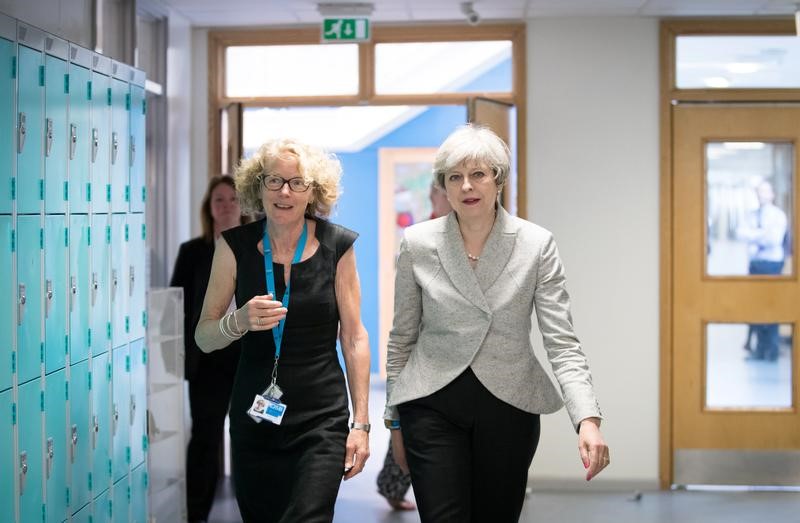By Guy Faulconbridge and Costas Pitas
LONDON (Reuters) - After losing her majority in parliament by betting on a snap June 8 election, British Prime Minister Theresa May must rely on a small Northern Irish party to ensure she can pass legislation.
With the support of Northern Ireland's Democratic Unionist Party (DUP), May now has a working majority of 13 in the 650-seat House of Commons.
Below is how May's working majority in the lower house of parliament is calculated, based on guidance from the House of Commons.
Sinn Fein's seven lawmakers do not sit in parliament because they oppose the British government's jurisdiction in Northern Ireland and do not want to make an oath to the British queen. In their manifesto, they pledge not to waste time at Westminster.
By convention, the speaker of the House of Commons and his three deputies (who have the titles of Chairman of Ways and Means, First Deputy Chairman of Ways and Means and Second Deputy Chairman of Ways and Means) do not vote.
So there are 639 lawmakers who are considered to be active. That means any government needs 320 votes for a simple majority.
The Conservatives won a total of 318 seats, though one is a speaker and one a deputy speaker, leaving May with 316 active lawmakers. Add on the Democratic Unionist Party's 10 lawmakers and May can command the votes of at least 326 lawmakers - as long as none of her lawmakers rebel.
On opposing benches, Labour can command 262 of its own lawmakers and rely on 53 lawmakers from other parties opposed to May. That totals 315 opposing lawmakers, but two will be deputy speakers, so there will 313 active lawmakers opposed to May.
May therefore has a working majority of 13.
Under the deal struck with the DUP, it will support the government on all motions of confidence, on the so-called Queen’s Speech legislative plan, the budget, finance bills, money bills, supply and appropriation legislation and estimates.
Seats in Parliament:
Conservative Party 318
Labour Party 262
Scottish National Party 35
Liberal Democrats 12
Democratic Unionist Party 10
Sinn Féin 7
Plaid Cymru 4
Green Party 1
Independent 1
Total 650
- Minus
Speaker and three deputies 4

Sinn Féin 7